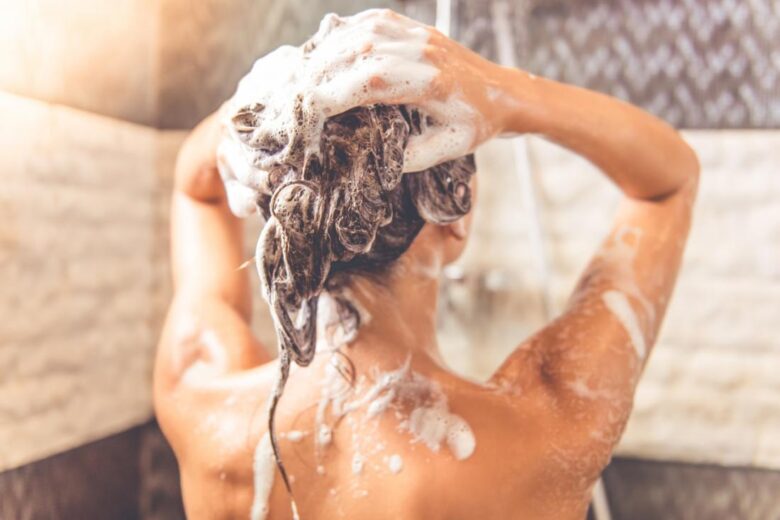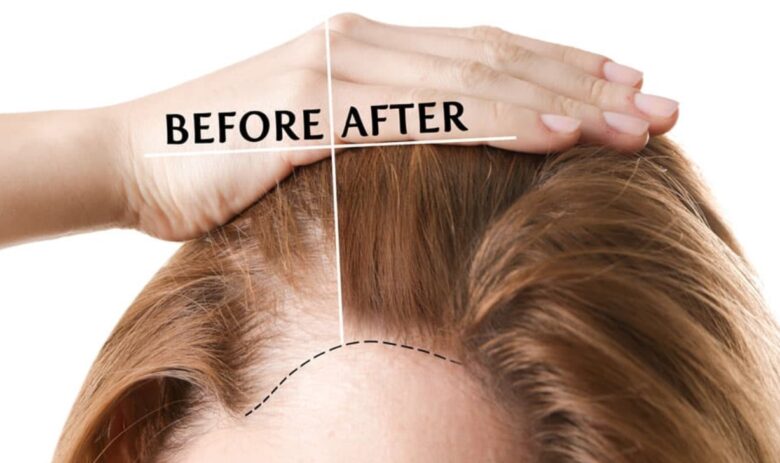Being able to style your hair and experiment with different lengths, colours, etc., can be a great way to express yourself and boost your confidence. However, if your hair isn’t in good health, it doesn’t always do what you want it to. Furthermore, failure to care for your hair properly could also risk hair loss or thinning, and this can be distressing for a lot of people. It’s well known that self-confidence is linked to appearance, particularly to the appearance of head hair. Of course, it’s important to address any mental health concerns with a professional, but giving your hair a bit of a boost does no harm. If you want to try and revive your hair and make it more luscious, here are some quick tips to help you do that.

Source: teenvogue.com
Contents
1. Reduce Exposure to Heat
There are all sorts of great hairstyles out there and many ways to style your own cut. You might use hair dryers, curlers, and other hot tools to style your hair but too much exposure to heat can damage it. Repeated high heat to hair can affect the keratin within it, leading to less elasticity and a weakening of your hair strands, thus resulting in more breakage. If you do ever style your hair with heat, always make sure you are applying special serum to protect your hair. Ideally, you should reduce how often your hair is exposed to heat, including long hot showers. Not only can this make your hair more brittle, but it can dry out the skin on your scalp as well. If you use heat to style your hair, look into other products which might be useful and reduce the temperature that you use. You should also consider reducing the number of times you heat style – perhaps only once a week instead of every other day.
2. Use the Right Products
It’s important to use the correct hair products to keep your locks looking their best as well. Your hair type and its characteristics are going to be unique to you, and although you can see what has worked for others, your best bet is to try different products to see what works. Like when you’re picking out moisturizers for skincare, think about whether your hair is dry, oily, etc., and pick out products that will help the issue, not make it worse. You should also investigate the problem you are facing – its root cause might not be one that you expect. For instance, oily hair might be the result of washing with the wrong product too often, not that you should be washing more. You should also avoid washing your hair every day where possible, as this can disrupt the natural oils and often dries hair out. It’s normally not necessary, too. As a rule, wash every other day if you have fine hair and need frequent washes. If your hair is thick and curly or coils, then once a week (even once every 10 days) could easily be right for you.

Source: medicalnewstoday.com
3. Don’t Brush Hair When It’s Wet
You might find it easier to work out the knots in your hair when it’s wet, but this is also when your hair is at its weakest. To avoid breaking your hair or losing more as you brush, it’s better to wait for your hair to dry before running a brush through it. Using a comb may also be beneficial. Remember to start near the tips and work in downward strokes to remove tangles without creating massive knots. The type of hairbrush or comb you use and the material it’s made out of will also impact your hair – investigate the right type for your hair type and give that a go. You may not even have to brush your hair at all, depending on your hair type.
4. Think About a Hair Transplant
If you have issues with your hair due to genetics, you might be eligible for a hair transplant. This procedure could certainly help to make your hair look thicker and healthier and is worth considering if you are experiencing balding. You can learn more about this at hshairclinic.co.uk. Hair loss can often be due to illness or stress, so it is important to talk to your doctor to rule out any underlying problems. Sometimes your hair will correct itself once you are on medication or once the stressful (physical or mental) period is over. However, if you find that you have hair loss and it is impacting how you perceive yourself, then there is no need to let it drag down your confidence or mental health. Approaching a professional clinic and talking to experts will help you to determine what your options are and what the most likely outcomes will be.

Source: rephairclinic.com
5. Consider Lifestyle Factors That Could Impact Your Hair
All of the above are great ways to nurture your hair, but there may be certain habits you have that aren’t helping. Living a balanced, healthy lifestyle can benefit your entire body, including hair rejuvenation. An unhealthy diet could result in lacklustre hair or even contribute to its thinning and falling out if your body doesn’t get the right nutrition. Getting the right hydration and ensuring you have all the nutrients you need, perhaps even getting a multivitamin if you find you cannot alter your diet to include everything you might need, will have a larger benefit on your health and your body, not just improve your hair. Being exposed to high levels of pollutants and smoke will also impact your hair health – if you live in a city, you may find that you need different hair care products than if you were to live in a less built-up area. As mentioned above, other healthcare conditions might contribute to this as well, and you should talk to a medical professional if you suffer a severe change in your hair over a short time frame.
If you would love for your hair to look healthier and thicker, the above suggestions could help you achieve this. It is important to make sure you are doing what you can at home to protect your hair, but if there are more significant problems, speak to healthcare professionals to learn more about how you can deal with hair loss.
